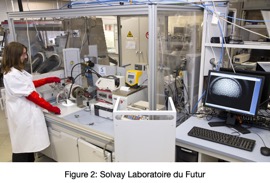The PacBot project aims to design a semi-autonomous cobotic system for assistance, capable of selecting, synchronising and coordinating tasks distributed between the human and the robot by adapting to different types of variability in professional gestures, while anticipating dangerous situations.
The orchestration of tasks between the human and the robot is difficult because it must answer the question of the distribution of roles within the couple according to the physical and decision-making abilities and constraints as well as the consequences of their interactions.
The concrete scientific objective of the project is to develop algorithms capable of constructing plans (sequences of decisions) that take into account the intra-personal variability of the operators. Planning is used as a decision engine both to predict the operator’s behaviour and to decide what actions the cobot should perform.
However, the scientific fundamentals of Pacbot, through the involvement of SHS (ergonomists and work psychologists) in the project, are to be able to highlight the sources of variability favourable to health and performance at work, and to guarantee the social acceptability of the cobot through a design fully integrating the user experience. The balance point between reactive/adaptive assistance and preserving assistance is obtained by considering human factors. The objective here is to limit human errors related to poor situational awareness.
We propose to integrate into the task planning process a risk criterion associated with a potential reduction in situational awareness. Our proposal is then demonstrated by a prototype of a cobotised workstation integrating the determinants of intra-personal variability.
